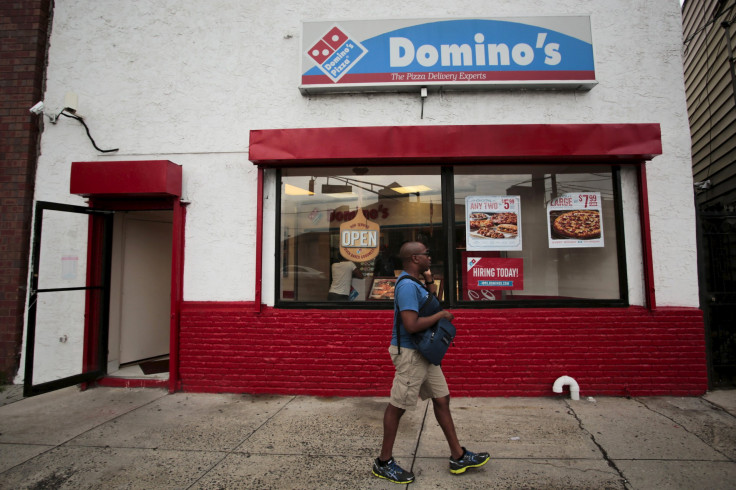Domino’s Pizza Payroll Software System Cheats Franchise Employees, Lawsuit Contends

New York state’s attorney general has announced a lawsuit claiming the world’s second-largest pizza delivery chain is responsible for its franchisees knowingly underpaying workers through the parent company's mandatory payroll software system.
The issue underscores a running debate over how much corporations are collaborating with franchisees on scores of issues pertaining to how workers are treated, including how much they are paid, paid time off and how much time employers need to provide workers regarding schedule changes.
“We’ve found rampant wage violations at Domino’s franchise stores,” New York state Attorney General Eric Schneiderman said Tuesday, announcing the lawsuit against Ann Arbor, Michigan-based Domino’s Pizza, Dominio’s Pizza Franchising LLC (which oversees the company’s licensing and franchising operations) and three company franchises operating 10 stores in and around New York City. “And, as our suit alleges, we’ve discovered that Domino’s headquarters was intensely involved in store operations, and even caused many of these violations.”
Domino’s spokesman Tim McIntyre told the Wall Street Journal on Tuesday that franchisees are responsible for employee management.
This is the first lawsuit from the attorney general’s office that alleges joint-employer status between a fast-food company and franchise stores. These companies claim franchises are independently owned, but proponents of joint-employer status argue that franchise operators are under strict guidelines on how they operate their businesses.
In January, the U.S. Labor Department issued guidance suggesting joint employer status is more broadly defined that many companies have established, though it stopped short of issuing any ruling. The National Labor Relations Board in August strengthened its definition of joint-employer status in any workplace complaints it receives.
© Copyright IBTimes 2024. All rights reserved.






















